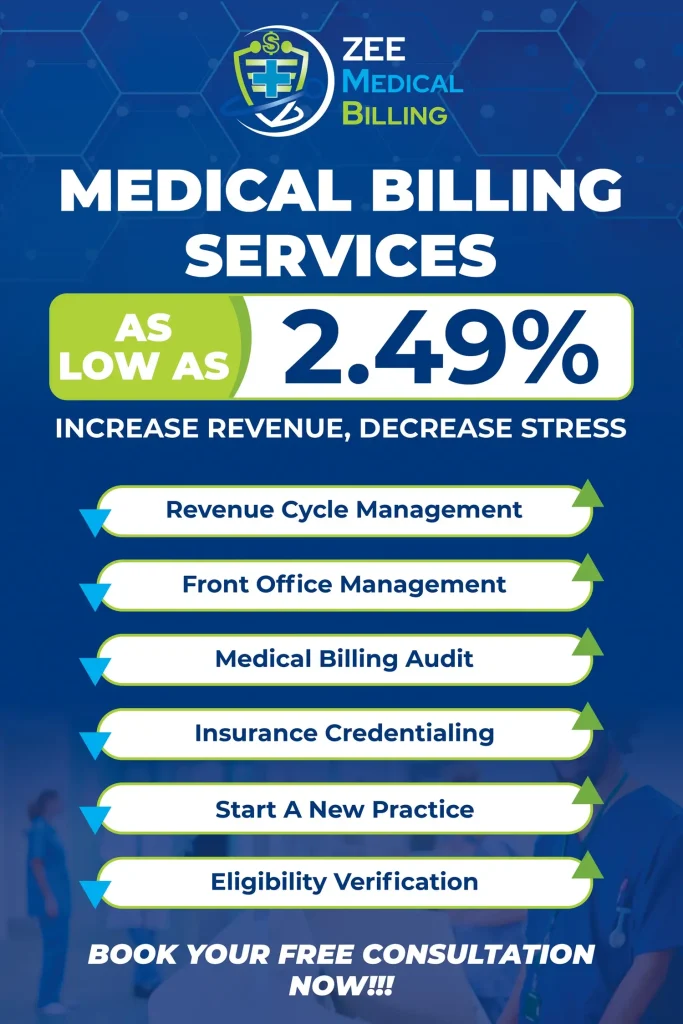Authorization in medical billing plays a critical role by ensuring that healthcare services receive approval and reimbursement correctly. It is an important process.
It helps healthcare providers check if a patient is eligible. It also helps them get approval from the payer before doing certain procedures or treatments. Let’s explore in detail what authorization means, why it matters, and how it impacts medical billing operations.
Understanding Authorization in Medical Billing
Authorization is a formal approval from a health insurance company. It confirms that the patient needs a specific treatment or service, and the plan covers it. Without this prior approval, providers risk having their claims denied or delayed.
Also Read: What are Prior and Retro Authorizations in Medical Billing?
Authorization is like a green light for some medical procedures. This is especially true for costly, elective, or non-routine ones.
Key Components:
- Authorization Number: A unique code assigned to the approved service.
- Authorization Code in Medical Billing: This code is documented on the claim and acts as proof that the insurer gave prior approval.
- Authorization Denial: This happens when a service is not approved, often due to medical necessity issues or improper documentation.
The Difference Between Authorization and Referral
People often confuse referrals with authorizations. While both relate to patient access to specialty care or specific services, they serve different purposes.
| Aspect | Referral | Authorization |
| Purpose | Directs patient to a specialist | Seeks insurer’s approval for treatment |
| Who Issues | Primary Care Provider (PCP) | Health Insurance Company |
| Requirement | Common in HMO plans | Required for certain procedures |
| Scope | General recommendation | Formal approval for coverage |
Types of Authorization in Medical Billing
Authorizations are categorized based on timing and type of care. Understanding each helps reduce denial rates and improves billing efficiency.
1. Pre-Authorization
This is required before the service is performed. Doctors most commonly use it for surgeries, imaging tests (like MRIs), or specialized treatments.
2. Concurrent Authorization
Used for ongoing treatment, such as inpatient hospital stays. It involves reviewing the necessity and duration of continued services.
3. Retro Authorization
This refers to obtaining authorization after the service provider delivers the service, usually in emergencies. However, we do not guarantee approval.
| Type | Timing | Use Case |
| Pre-Authorization | Before service | Elective surgery, MRI, specialist visits |
| Concurrent Authorization | During treatment | Extended hospitalization |
| Retro Authorization | After service | Emergency cases |
Why Is Authorization Important?
- Reduces Denials: Proper authorization reduces the risk of denied claims.
- Ensures Medical Necessity: Confirms treatment aligns with the patient’s benefits.
- Improves Cash Flow: Streamlined authorizations lead to faster reimbursements.
- Patient Assurance: Patients know upfront if the procedure is covered.
Authorization Denials: What You Should Know
Denials can occur even if the process was followed. Common reasons include:
- Missing or incorrect documentation
- Non-covered services under the patient’s plan
- Expired authorization
- Incorrect authorization number
Avoid these by ensuring accurate and timely submissions. Always double-check the payer’s policy.
Common Questions Around Authorization
What Is the Authorization Number in Medical Billing?
A unique identifier provided by the insurance company approves the service. You must include this in the claim form to show that the payer approved the treatment beforehand.
What Is Prior Authorization in Medical Billing?
Prior authorization is the process of getting insurer approval before delivering a specific service. Without it, someone may reject the claim or not reimburse it.
Also Read: Master Prior Authorizations for Medical Billing Success
What Is Referral Authorization in Medical Billing?
This occurs when a referral comes with prior authorization. In some insurance plans, you need a referral and approval before seeing a specialist. You also need this approval to get treatment.
What Is Meant by Retro Authorization in Medical Billing?
Retro authorization occurs when the provider requests approval after delivering the service. People generally discourage it unless the service occurs under urgent circumstances.
What Are the Types of Prior Authorization in Medical Billing?
Generally, three types exist: pre-authorization, concurrent, and retro. Users select each option based on the timing of the request and the nature of the service.
FAQs
1. How many types of authorization exist in medical billing?
Three main types exist: pre-authorization (before service), concurrent authorization (during service), and retro-authorization (after service). Each serves a specific purpose based on the nature and timing of the treatment.
2. What is the difference between referral and prior authorization?
The primary care physician initiates a referral to recommend a specialist. The insurer requires prior authorization to approve the cost of care. Depending on the insurance plan, you may need both.
3. What is an authorization denial in medical billing?
This occurs when the insurance company refuses to approve a service. Common reasons include the service being non-covered, expired authorization, or missing documents.
4. Is retro authorization a reliable method?
No. Retro authorization is used as a last resort, and approval is not guaranteed. It serves for emergency cases when someone couldn’t obtain pre-authorization.
5. Why is it essential to track authorization codes?
The authorization code confirms service approval. Without it, someone might deny the claim. Accurate record-keeping ensures compliance and timely reimbursement.
Conclusion
Understanding authorization in medical billing is important. It helps providers have a smooth revenue cycle and reduces stress for patients.
From pre-authorizations to retro requests, each type has a special purpose. You must handle them correctly to avoid delays or denials. By understanding the difference between referrals and authorizations, medical offices can work more efficiently. Being proactive in getting the right approvals helps improve patient satisfaction.
Need Expert Medical Billing Services?
Zee Medical Billing provides professional billing solutions tailored to healthcare providers across the United States. In addition to offering top-tier support from our main office, we proudly serve clients in Illinois, Indiana, California, Kentucky, New York, Washington, Georgia, Alabama, South Carolina, Texas, Pennsylvania, Ohio, New Hampshire, Nevada, Massachusetts, Hawaii, Arizona, and Colorado! Whether you’re looking to streamline your revenue cycle or improve claims accuracy, you can reach out to us to learn more about how we can support your practice.









